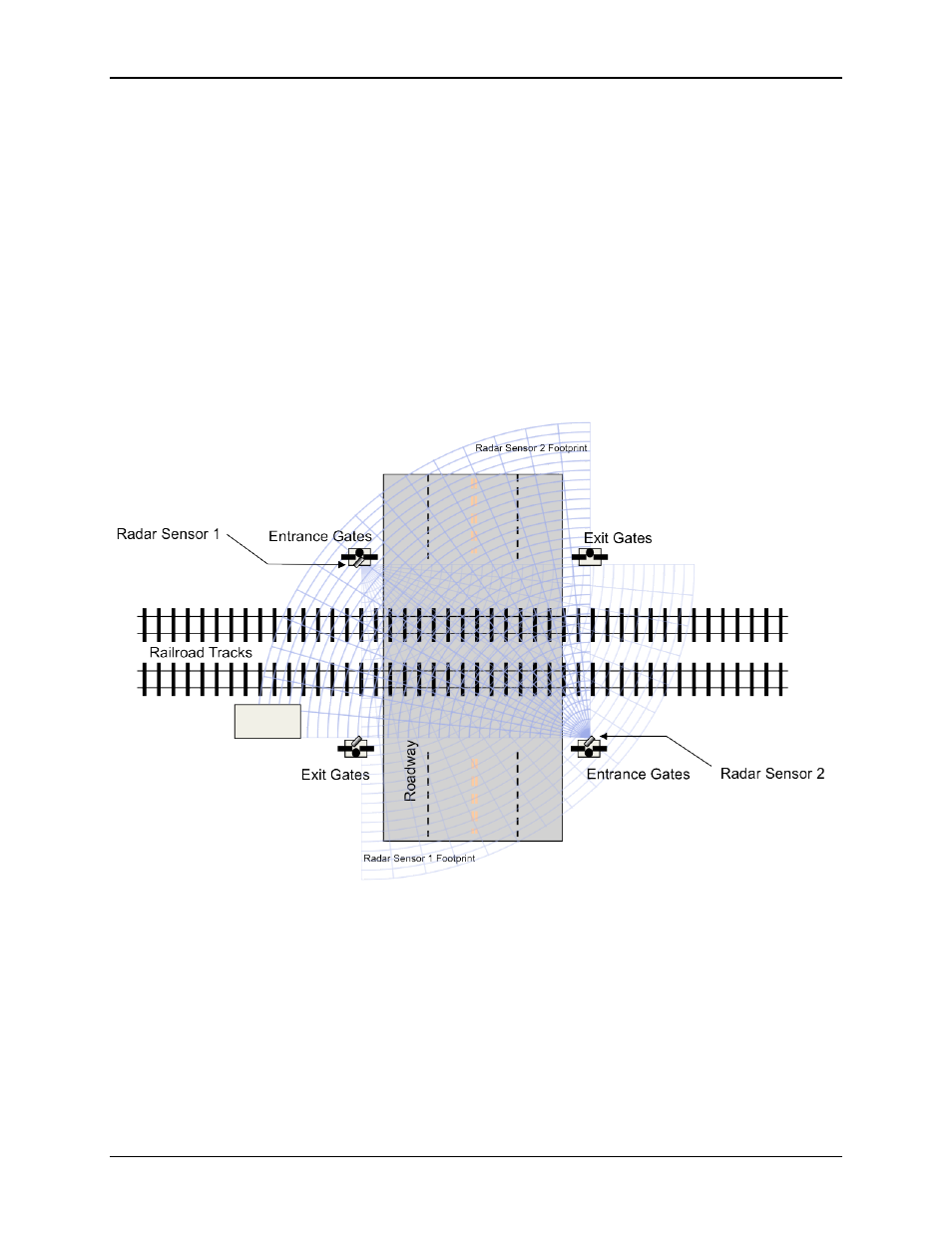Wavetronix VDR24 Radar User Manual
Page 18

Introduction and Overview
18
VDR24 Radar Detection System, Rev 1.0
2.3. Introduction to the Island Radar System Components
2.3.1. System Layout
Each radar sensor has a detection footprint that is quarter-circle shaped, 90 degrees by 140
feet. Within this detection footprint up to 10 lanes of traffic may be configured with up to 16 four-
sided polygon detection zones. Each of these zones is correlated to one of four isolated outputs
that are connected to the crossing controller or other equipment.
The Island Radar system is designed to utilize one sensor on each side of the crossing island,
for instance, one on each exit gate mast or one on each entrance gate mast. Optionally, the
radar sensors can be mounted on dedicated masts but they should be in line with and spaced
no more than 10 feet away from the exit or entrance gate masts. In this manner, both radars can
be configured to monitor the same lanes of traffic and the same detection zones. The VDR24
controller, typically located in the crossing bungalow, will combine these outputs together so that
the radar devices operate with 100% redundancy.
The sensors are optimally mounted at a height of 18-22 feet above the roadway. Since most
gate masts are a maximum of 15 feet, Island Radar provides a 48-inch Extended Mounting
Bracket that can be clamped to the crossing gate mast. In the case of train detection at
crossovers, where poles may be greater than 20 feet in height, Island Radar can provide radar
sensor mounts that can extend horizontally from the top of taller poles without extending the
sensors vertically.
FFiigguurree 22 -- O
Ovveerrhheeaadd VViieew
w ooff aa TTyyppiiccaall C
Crroossssiinngg IInnssttaallllaattiioonn
